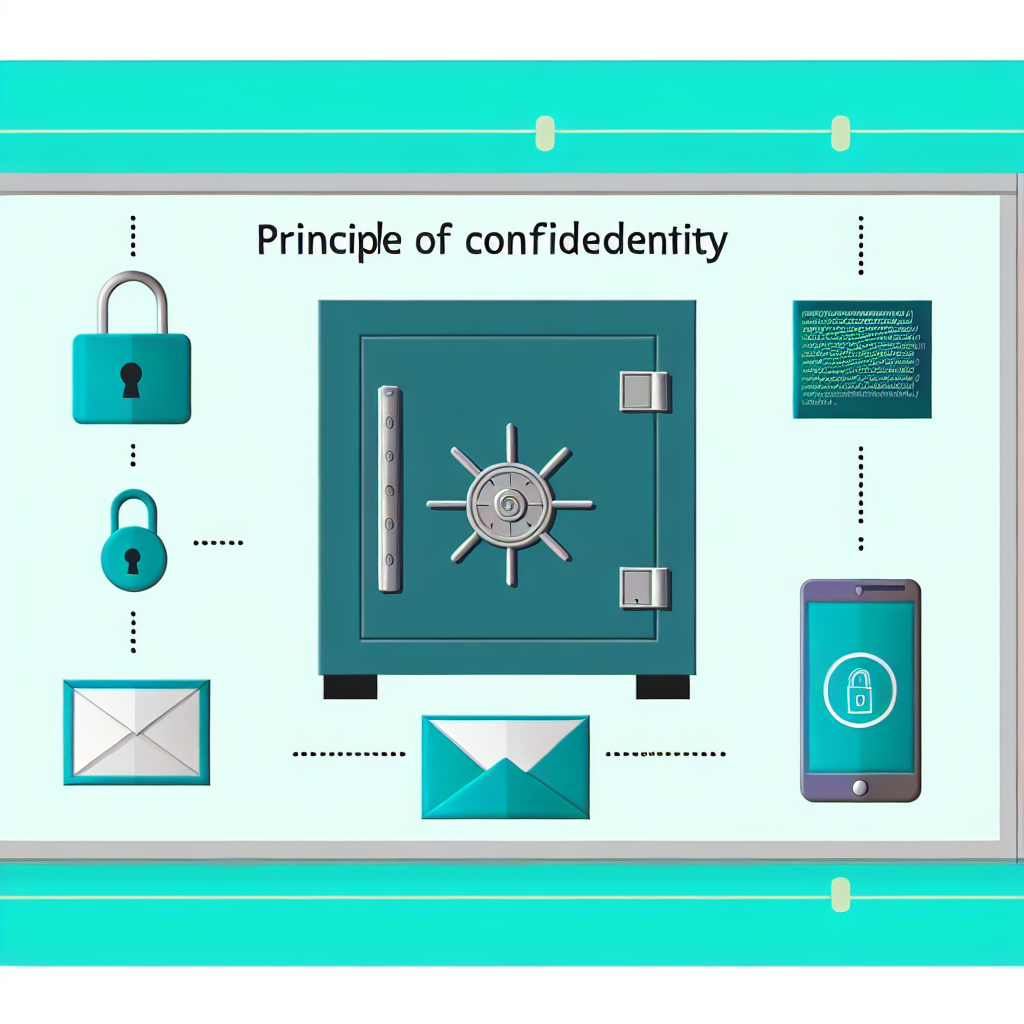
Confidentiality stands as a cornerstone in numerous sectors, including healthcare, business, and education. Its essence goes beyond the mere protection of sensitive information; it fosters trust, promotes confidence among clients, and ensures compliance with legal and ethical standards. In this post, we will delve into the intricacies of confidentiality, particularly focusing on its significance for Human Resource professionals. We’ll explore current trends, the legal landscape, and the key benefits to maintaining confidentiality in workplace settings.
Understanding Confidentiality: Definition and Importance
Definition: Confidentiality embodies the principles governing the limited access to certain types of information. These principles are typically articulated through confidentiality agreements and organisational policies. To protect sensitive employee information, HR professionals must uphold these principles diligently.
Importance: The role of confidentiality cannot be overstated. It is a fundamental requirement that creates a safety net protecting both individuals and organisations. Trust is fostered when confidentiality is respected, which is essential for maintaining a positive workplace culture. Moreover, confidentiality safeguards reputations and prevents the misuse of sensitive information. In the context of HR, confidentiality is crucial for handling employee records, performance evaluations, and personal matters appropriately.
Current Trends in Confidentiality
Technological Advances and Their Impact
With the integration of technology in workplaces, maintaining confidentiality has become increasingly intricate. The rise of systems for managing electronic records presents challenges to safeguarding confidential information. HR professionals are called to implement stringent security measures, such as:
- Password protection for sensitive documents
- Encryption of electronic files
- Secure cloud storage solutions
These measures not only protect against unauthorised access but also reinforce employee trust in the organisation’s commitment to privacy.
Adhering to Data Protection Laws
Understanding and complying with data protection laws is pivotal for HR professionals. In Europe, the General Data Protection Regulation (GDPR) sets out clear guidelines regarding the handling of personal information. In the UK, various regulations stipulate that only authorised personnel should access sensitive employee data. Failure to adhere to these regulations can lead to severe penalties, including hefty fines and legal actions. Therefore, implementing robust policies that align with these regulations is essential.
The Key Benefits of Confidentiality
Building Trust and Autonomy
Respect for confidentiality enhances an organisation’s credibility. For HR professionals, this means creating an environment where employees feel secure sharing sensitive information. When employees trust that their data will be handled with discretion, they are more likely to disclose details that are crucial for effective workplace management. This trust not only aids in recruitment but also supports retention strategies.
Avoiding Legal and Ethical Pitfalls
The implications of maintaining confidentiality transcend ethical considerations; they also extend into legal territories. Breaches of confidentiality can result in legal ramifications, including lawsuits and financial penalties. HR professionals must navigate these waters carefully, ensuring that their practices reinforce compliance with relevant laws and regulations.
Real-World Applications: The Importance of Maintaining Confidentiality
Consider a situation where a company is handling sensitive employee records, such as medical history or personal grievances. Preserving the confidentiality of this information not only aligns with legal expectations but also promotes a positive company culture. Employees are more likely to feel valued and respected when they trust that their private information is safely guarded.
Exceptions to the Rule
While protecting confidentiality is vital, there are specific circumstances where disclosing information may be unavoidable. For instance, in cases involving threats to individual safety, such as potential harm to oneself or others, HR professionals may be legally obligated to breach confidentiality. Awareness of these exceptions ensures that HR departments respond appropriately while still valuing the principle of confidentiality.
The Consequences of Breaches
Breaches of confidentiality can have dire ramifications. Besides the potential for legal repercussions, the damage to an organisation’s reputation can be irreparable. Employees may lose trust in their employers, resulting in lower morale and decreased productivity. Moreover, a loss of trust can impede effective communication within teams, ultimately affecting the organisation’s overall performance.
Conclusion
The principle of confidentiality is not merely a legal or ethical obligation; it is a vital part of fostering trust within the workplace. For HR professionals, understanding the complexities of confidentiality—including relevant trends and laws—is essential for effective management. Implementing robust policies to protect sensitive information not only upholds compliance but also cultivates a positive organisational culture based on mutual respect and confidentiality.
Recommended Practices for HR Professionals
- Regular Training: Ensure that staff receive ongoing training about confidentiality and data protection, making them aware of the importance of safeguarding sensitive information.
- Review Policies: Conduct regular reviews of confidentiality policies to ensure compliance with current laws and best practices.
- Encourage Open Communication: Foster an environment where employees feel safe from reprisals when discussing issues related to confidentiality.
By prioritising confidentiality, HR professionals can contribute to the development of trusting relationships within their organisations. For further reading on confidentiality practices, consider the following resources:
- What Is Confidentiality? | Importance, Types, Policy & Breach – CPD Online
- Principles of Confidentiality – Physiopedia
- Confidentiality and Privacy of Personal Data – NCBI
- The Value and Importance of Health Information Privacy – NCBI
- Confidentiality | UW Department of Bioethics & Humanities
By embracing these insights and resources, HR professionals can better safeguard confidentiality within their organisations, ultimately benefiting both employees and employers alike.
Vadim Kouznetsov is a distinguished entrepreneur and the visionary founder and CEO of JobXDubai.com, the UAE’s rapidly expanding job board. Renowned for his expertise in bridging the gap between job seekers and employment opportunities, Vadim has become a leading authority in the recruitment and job market of Dubai.
